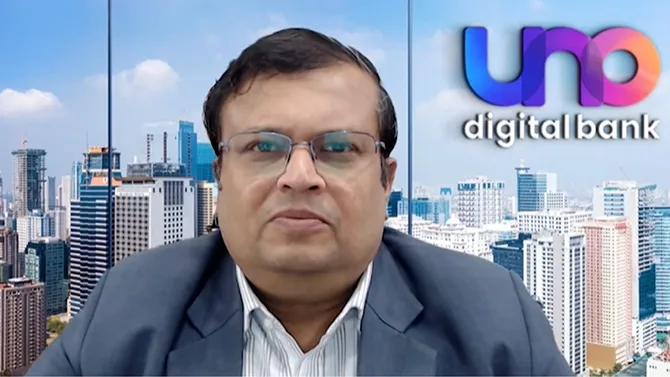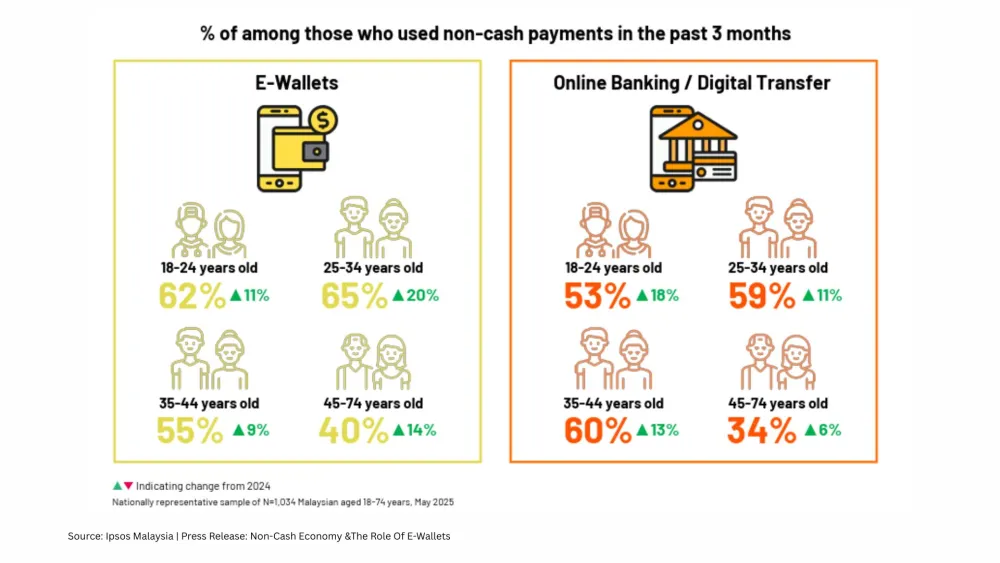
UNOBank pushes embedded finance in Philippines
The platform seeks to boost its digital banking business and expand financial services.
UNOBank, Inc. is championing a unified banking platform not just to boost its digital banking business in the Philippines, but also to expand Filipinos’ access to more financial services.
The platform, also called embedded finance, seeks to create a smoother customer experience by embedding banking and financial services in the customer journey — from retail purchases both online and offline to healthcare and even transportation.
“This helps us to get ourselves embedded in our customers’ life, and helps them to improve their living and lifestyle,” Kalidas Ghose, co-founder of UNOAsia andnnnnn chairman of UNO Digital Bank, told Asian Banking & Finance in a video interview. “We believe this will attract more customers to our platform and lead to financial inclusion and ultimately, to economic growth.”
Embedded finance can unlock an opportunity bigger than the value of all fintech startups and the top global banks and insurers combined, according to ABN AMRO Ventures. It is a multi-trillion-dollar opportunity whose market value is expected to hit US$7.2t by 2030, it said in a report.
But the ecosystem requires a lot of work, cost and cooperation from both the government and all financial players in the Philippines. One issue is that the laws that secure finance do not yet extend to digital banking players.
“Electronic instructions are the way to go in the world now, and therefore we need to make sure that we extend the lender protection laws for physical instruments to electronic instructions as well,” Ghose said. “That would probably be the first step.”
“We need to make sure that the vendors and the financial institutions who are participating are adequately protected from willful delinquencies, from willful default, and therefore [we need] laws which protect the institutions,” he added.
Asian Banking & Finance spoke with Ghose to learn more about what can be done to quicken the adoption of embedded finance.
How can the Philippines fast-track the adoption of embedded finance?
There are many ways that the Philippines can facilitate the growth of the unified banking interface, starting with the unique national ID, a biometric ID that the Philippine government has started implementing. They have issued a significant number of IDs to Filipinos, and are in the process of distributing them so that the individuals can use them for applying to banks which we are waiting for.
We are also looking at implementing a credit bureau mechanism that goes beyond what it is now, which is fairly fragmented, and mandates every financial institution to not only contribute, but contribute in a way that the information can be used by the creditor to answer the queries about the [credit health] of our customers.
We believe that as the national ID comes into being, linking it to the telephone numbers in the local market would help us prevent fraud, identify customers better, and give them better access to credit in the future.
How can public-private partnerships improve credit inclusion?
I guess there are two aspects to this. One, of course, is to make sure that all the data are available in the market.
What improves the customer's credit standing, or creates or helps us assess his credit worthiness? Partnership amongst all the players, both private as well as public, will definitely help.
The income tax department, the pension contribution, the contribution towards social insurance and similar other private records — for example, travel records. Of course, financial institutions have banking records.
If the information network is unified and if there is a regulatory framework, as well as an infrastructure created for exchanging and accessing this information for the purpose of assessing customers in order to extend credit to them, it will be a great help. And it will definitely accelerate access to formal credit, bring the cost of credit down, and in turn, help it grow by improving both production and consumption.
How else can the country improve credit inclusion?
One of the significant other ways that the authorities can help is the promotion of open finance. That requires technology to be developed appropriately so that trust and security are ensured.
The regulatory framework has to be changed in order to facilitate the exchange of information about not only financial institutions, but several departments of the government and even private players.
Access to these information that the customers are creating as part of their daily life will help us assess them better, customise our products — not just credit products, but also other banking products — and help us offer these products in a seamless manner to them, embedded in their daily life.
Of course, the other area where the government can help us is by implementing legal protection laws. For example, extending the breach of repayment obligations from physical instruments to online digital instruments as well, like electronic debits and several other ways in which lenders can be protected so that they can foster a healthy credit extension environment.
What are the obstacles to open finance?
The key key obstacles in the Philippines are very similar to other markets. So, there is obviously a trust issue. There is, at this point of time, a regulatory framework or a compliance issue, because we need to develop the framework for exchanging this information.
We need to have specialised organisations that take custody of the information, as well as ensure their smooth exchange — in a secure, safe, confidential, and also in a compliant manner.
There is also the cost of accessing this information that needs to be determined. Obviously, it ultimately is owned by the customer, and it's for the benefit of the customer. So the commercial model has to develop, keeping that in mind.
Nonetheless, the technology required for handling such large volumes of data in a safe and secure way has got to be ironed over time and ensure their exchange amongst institutions in a manner that helps in assessing customers and then extending [credit] facilities, but also in personalising financial products. I think personalising financial products is necessary for open finance to develop.
What policies and regulations can improve credit access in the Philippines?
Implementation is first. The Philippine government has taken steps towards this, and there is obviously a strong government will to implement it. We have to see it reach its goal in terms of reaching out to every Filipino, so that we are able to identify them.
The second part of this, as we mentioned, is around the linkage of telephone numbers or SIM cards to their national ID, and also creating a credit bureau, where all financial institutions are mandated to contribute their data towards a credit bureau. This is also a credit bureau capable of providing responses to queries made about those customers from other institutions. So, a universal credit bureau as opposed to a bit fragmented one that is in the Philippines.
We do believe that open finance will help us access data beyond credit that the customer is saving, and help us assess them better



















 Advertise
Advertise














